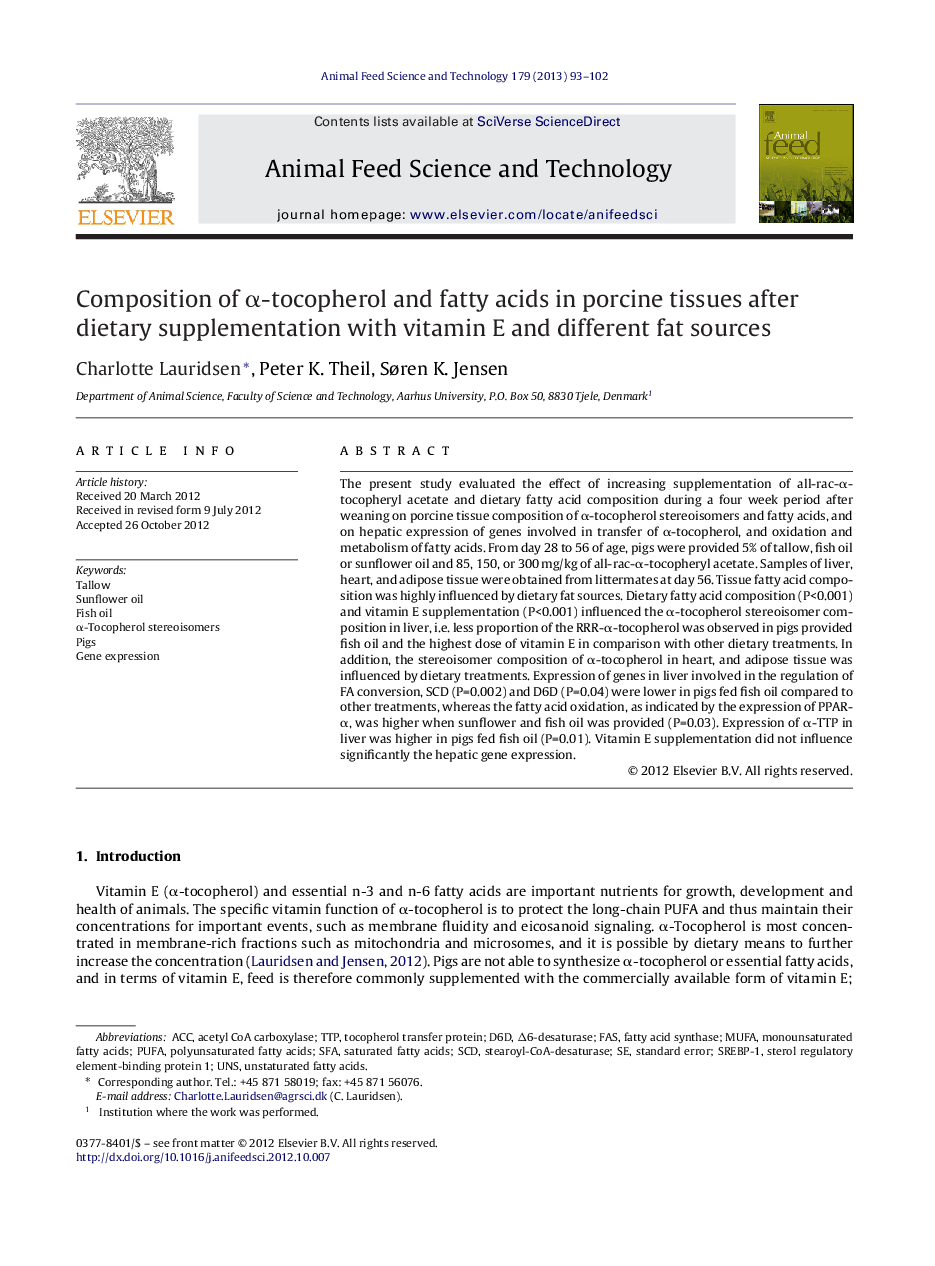| کد مقاله | کد نشریه | سال انتشار | مقاله انگلیسی | نسخه تمام متن |
|---|---|---|---|---|
| 2419774 | 1552409 | 2013 | 10 صفحه PDF | دانلود رایگان |

The present study evaluated the effect of increasing supplementation of all-rac-α-tocopheryl acetate and dietary fatty acid composition during a four week period after weaning on porcine tissue composition of α-tocopherol stereoisomers and fatty acids, and on hepatic expression of genes involved in transfer of α-tocopherol, and oxidation and metabolism of fatty acids. From day 28 to 56 of age, pigs were provided 5% of tallow, fish oil or sunflower oil and 85, 150, or 300 mg/kg of all-rac-α-tocopheryl acetate. Samples of liver, heart, and adipose tissue were obtained from littermates at day 56. Tissue fatty acid composition was highly influenced by dietary fat sources. Dietary fatty acid composition (P<0.001) and vitamin E supplementation (P<0.001) influenced the α-tocopherol stereoisomer composition in liver, i.e. less proportion of the RRR-α-tocopherol was observed in pigs provided fish oil and the highest dose of vitamin E in comparison with other dietary treatments. In addition, the stereoisomer composition of α-tocopherol in heart, and adipose tissue was influenced by dietary treatments. Expression of genes in liver involved in the regulation of FA conversion, SCD (P=0.002) and D6D (P=0.04) were lower in pigs fed fish oil compared to other treatments, whereas the fatty acid oxidation, as indicated by the expression of PPAR-α, was higher when sunflower and fish oil was provided (P=0.03). Expression of α-TTP in liver was higher in pigs fed fish oil (P=0.01). Vitamin E supplementation did not influence significantly the hepatic gene expression.
Journal: Animal Feed Science and Technology - Volume 179, Issues 1–4, 31 January 2013, Pages 93–102